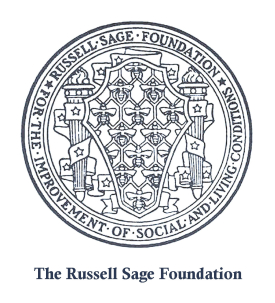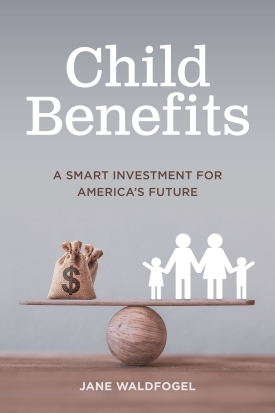About This Book
This one-page sheet provides a list of societies that have agreed to serve as forwarding centers for correspondence related to families in need in places without any charity organizations.
This one-page sheet provides a list of societies that have agreed to serve as forwarding centers for correspondence related to families in need in places without any charity organizations.
This one-page sheet provides a list of societies that have agreed to serve as forwarding centers for correspondence related to families in need in places without any charity organizations.

This one-page sheet provides a list of publications published by the foundation’s Charity Department.

This booklet, printed but not published by RSF, provides a list of charity organizations in the United States and Canada along with a selected list of foreign societies and US consuls.

This booklet, printed but not published by RSF, provides a list of charity organizations in the United States and Canada along with a selected list of foreign societies and US consuls.
This is the 1917 edition of the transportation agreement regulating the granting of free transportation and charity rates.
This booklet, issued in several editions for the Committee on Transportation of the National Conference of Charities and Correction, provides rules for the granting of free transportation and charity rates.

This article from Scribner’s Magazine was reprinted with permission by the Russell Sage Foundation. It discusses the growth of charity organizations in the United States. A note from the foundation indicates that the original article was illustrated and contained a sketch of New York City social agencies and tributes to the founders of those organizations.
JACOB A. RISS (1849–1914) was a journalist and social reformer.
This article from Scribner’s Magazine was reprinted with permission by the Russell Sage Foundation. It discusses the growth of charity organizations in the United States. A note from the foundation indicates that the original article was illustrated and contained a sketch of New York City social agencies and tributes to the founders of those organizations.
JACOB A. RISS (1849–1914) was a journalist and social reformer.

"Conservatives in other countries have long supported universal child benefits as an important tool for tackling child poverty while encouraging work and family stability. American conservatives have been more skeptical, but, as Jane Waldfogel demonstrates with wide-ranging evidence, child benefits are one pro-family policy that deserves support across the political spectrum."
-JOSH McCABE, director of social policy, Niskanen Center
"In this well-researched and informative book, Jane Waldfogel examines the case for child benefits in the United States. Woven with evidence and history, and tackling head-on the trade-offs embedded in the policy debate, Child Benefits is exactly what we need for this moment."
-HILARY HOYNES, Chancellor's Professor of Economics and Public Policy, Goldman School of Public Policy, University of California, Berkeley
"If you're interested in child poverty and in issues and challenges that government benefits and programs for children now face, do not miss Child Benefits. It is full of keen insights, thoughtful and deeply informative discussions, and wisdom about where we as a nation should go from here. And it's written in a clear, nontechnical, and highly readable manner that should appeal to a broad audience, which the book very much deserves."
-ROBERT GREENSTEIN, visiting fellow in economic studies, The Brookings Institution, and founder and president emeritus, Center on Budget and Policy Priorities
The United States has one of the highest child poverty rates among wealthy countries and stands out among its peers as the only country that does not offer a child benefit – regular payments from the government to most or all families with children, not conditioned on parental employment. During the temporary expansion of the Child Tax Credit (CTC) in 2021, the CTC functioned as a child benefit, and the child poverty rate fell to the lowest level ever recorded in the United States. Despite this decrease, the CTC expansion was not renewed. Concerns about enacting a child benefit include the cost, the possibility of misuse of money by parents, and how it might affect parental employment and fertility. In Child Benefits, social policy scholar Jane Waldfogel details the history and origins of child benefits around the world and comprehensively assesses how child benefits affect family spending, fertility, employment, child poverty, and child wellbeing to address such concerns and to determine the benefits of enacting such a policy permanently.
Drawing on research from peer countries in the Organization for Economic Cooperation and Development as well as the United States, Waldfogel shows that a child benefit would prevent poverty and hardship and protect children from deep poverty and income instability. The research is clear that families would spend the money from a child benefit on food, clothing, and other items for their children and that a child benefit would not have large negative impacts on parental employment or family decisions about fertility. It also shows that a child benefit would promote short- and longer-term child and family wellbeing. Child benefits have been shown to enhance opportunity and benefit society through healthier and better-educated young adults and stronger and more stable families. And rigorous benefit-cost analyses indicate that a child benefit, while costly, would more than pay for itself, yielding a large return on investment.
Waldfogel evaluates four current, major proposals for a child benefit and provides recommendations for a policy that would deliver the best outcomes for children and families and the best return on investment. She argues that such a policy would be more generous, not tied to parental employment or earnings, available to all parents but phased out for higher-income families, delivered in monthly payments through the tax system, and provided in addition to existing social programs.
Child Benefits provides fascinating insights on the history and impacts of child benefits and makes a clear and definitive argument for the establishment of a child benefit in the United States.